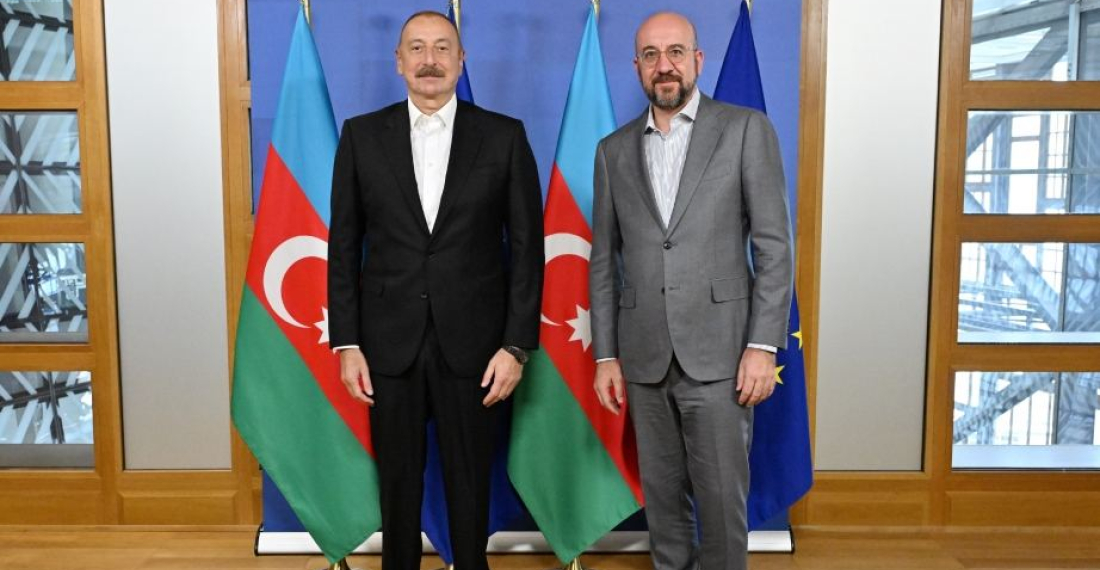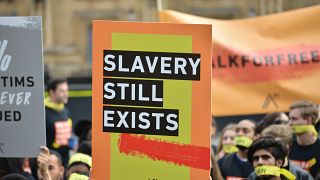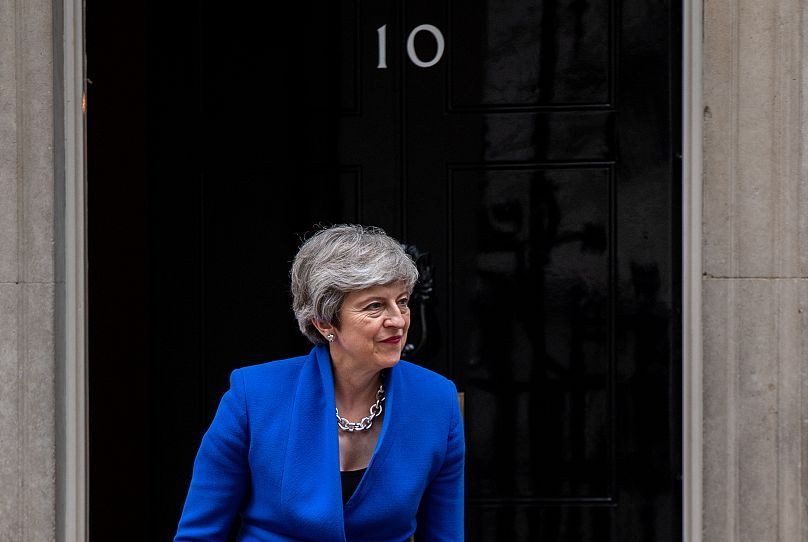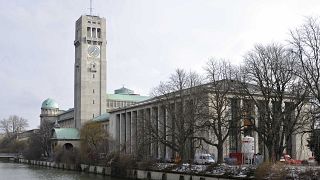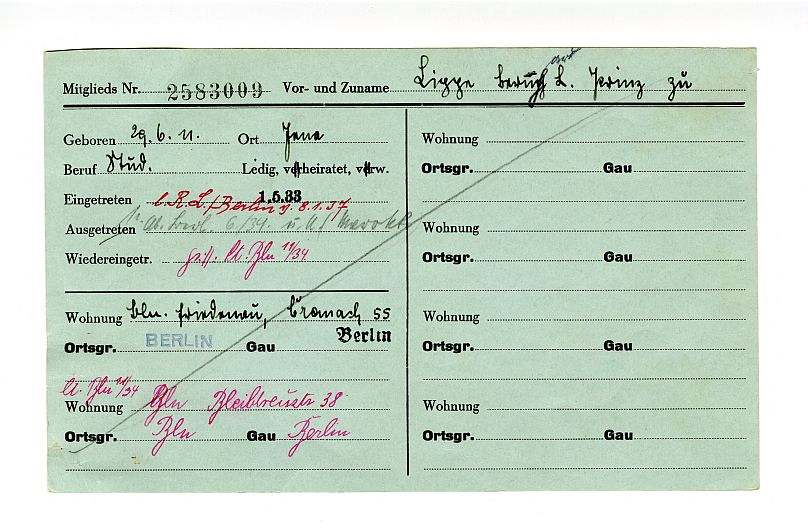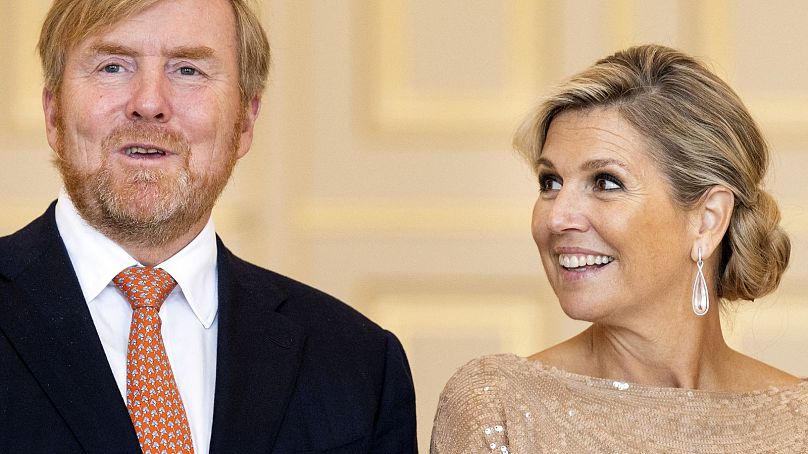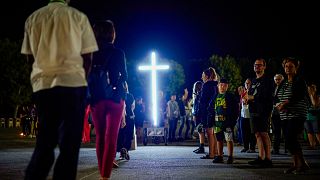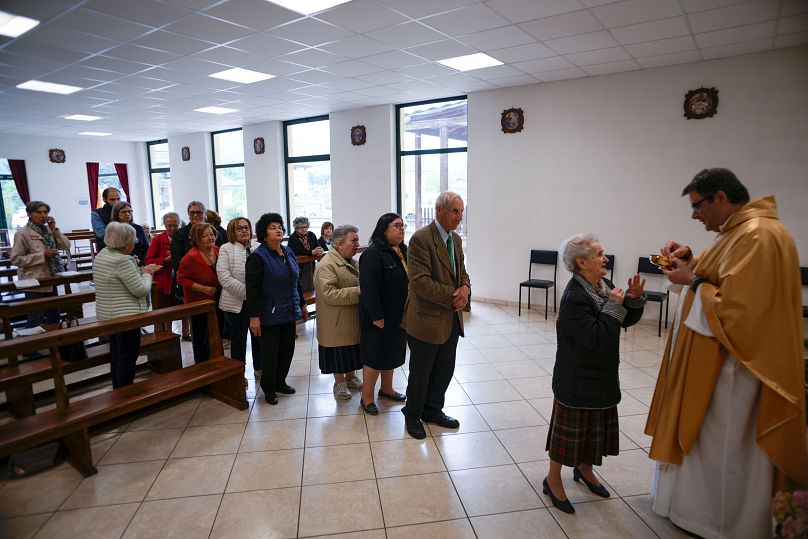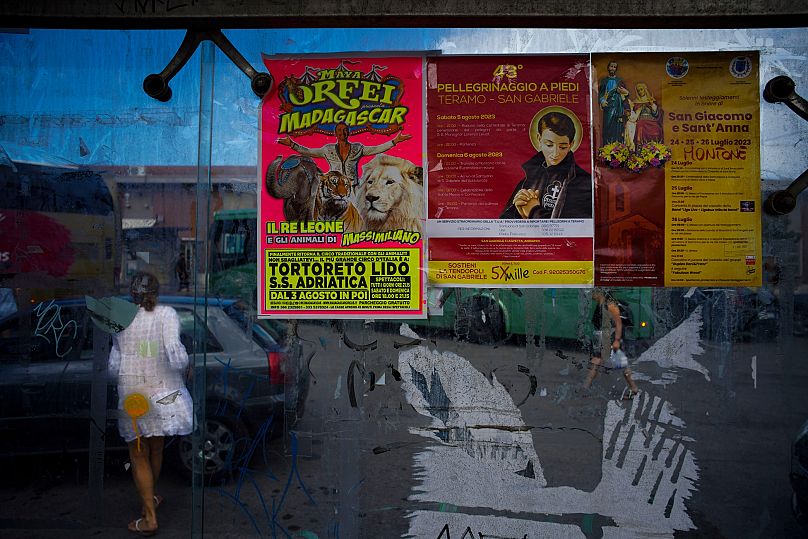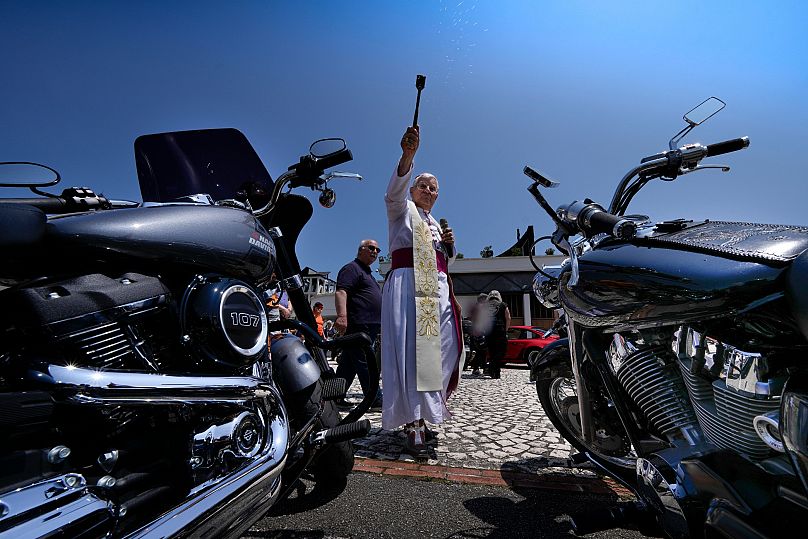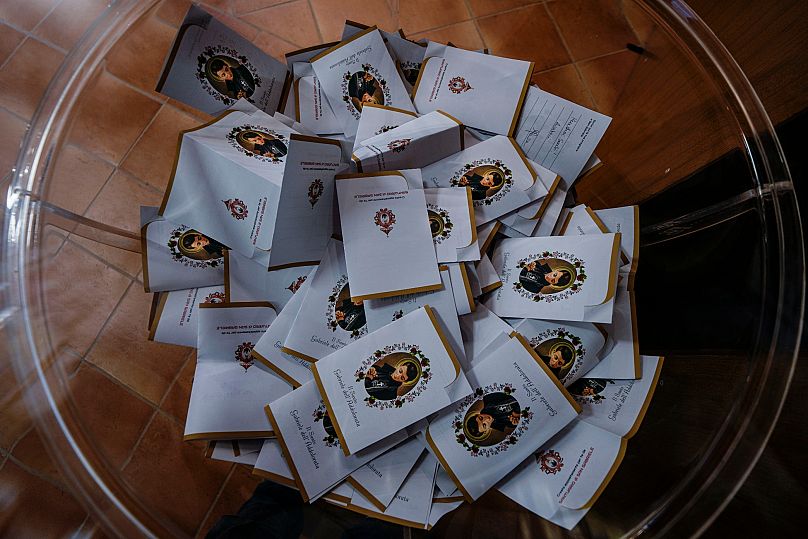Vatican City - home to the Pope and many of the world’s most influential religious figures - is right in the centre of Rome, the capital.
Unsurprisingly, then, most people retain at least a nominal affiliation to the church, taking part in their many and varied traditions but, increasingly, with little adherence to doctrine or practice.
According to recent findings from the Pew Research Centre survey, 78% of Italians still profess to be of the Catholic faith.
So far, so believable.
Dig a little deeper though and you’ll see a very different picture.
The Italian statistics agency, ISTAT, says only 19% attend services at least weekly - while 31% never attend at all.
Experts say that the COVID-19 pandemic significantly accelerated a disengagement with Catholicism in Italy which started at least a generation ago.
It’s a trend that’s become ever more concerning for those within the church.
“‘I don’t have time, I don’t feel like it’ - there isn’t a real reason. That’s what’s scary”, the Reverend Giovanni Mandozzi, a parish priest in the central mountain village of Isola, tells AP.
Despite his attempts to persuade his parishioners to return to services - “I tell them, ‘I do Mass in under 40 minutes, you can leave your pasta sauce on the stove, and it won’t even stick to the bottom of the pot” - attendance is at an all time low.
Mandozzi is forced to preach in a former butchers shop after two earthquakes in the Abruzzo region have caused significant damage to Isola’s church since 2009.
In the shop, he told the Mass congregation, made up of fewer than two dozen local pensioners, “the sign of the cross isn’t a quick fly-swatting gesture”.
It’s a sight totally alien to the elderly audience who would have been used to a packed church.
Next door, though, the atmosphere can best be described as buzzy. The venue? A bar - packed with young families.
“Everything has changed,” the bar owner, Natascia Di Stefano tells AP.
“Sunday used to be church with your family. Now youths don’t even want to hear about it, like an ancient thing that’s useless”, the mother of two teens expands.
At another bar nearby - which, a little ironically, faces a mediaeval chapel - a group of friends in their 20s enjoy a drink.
They explain that they grew up attending Mass and catechism - only to bring their relationship with the church to an abrupt halt after being confirmed.
Traditionally a central practice to those of the Catholic faith, confirmation is a commitment to witness their faith through the gifts of the Holy Spirit.
Today, though, it’s because little more than a last rite that people feel obligated by family tradition to partake in.
“It would have become just a routine,” 24-year-old student Agostino Tatulli tells AP, adding. “I’d say I’m spiritual. I don’t know if God exists.”
The reasons for this increasing lack of belief are numerous but Dr Nadia Beider, a Sociology of Religion research fellow at University College London tells Euronews that the research suggests that a decline in religious engagement often leads to a lack of affiliation and date somewhere down the road thanks, in part, due to the “level of effort required to sustain regular religious behaviour such as church attendance”.
“The process accelerates over time as people disaffiliate from the religion in which they were raised and an increasing proportion are raised without religion”, Beider adds.
Spirituality and tradition do, though, still seem to be at the core of many young Italians’ beliefs today.
Saints days and blessings from priests are particularly important - even if organised religion is proving less attractive for increasing numbers.
Hundreds of bikers go to churches for an annual blessing, as do thousands of teenagers in the early spring for a ‘blessing of the pens’ before they take their final exams.
Catholicism is still a central part of another rite of passage for many - wedding ceremonies.
They remain the choice of about 60% of Italians marrying for the first time.
Catholic funerals, too, are still said to be favoured by 70% of Italians, although some funeral directors are opting to build ‘neutral’ wake rooms in their establishments to appeal to those keen not to focus on God at the end of their lives.
While lay people still cling on to some aspect of Catholicism from the cradle to the grave, there are logistical hurdles to overcome for church leaders too.
They’re already struggling with a significant drop in vocations that leaves many with barely the time to celebrate Masses in multiple villages under their care.
A wider European picture
It will come as little surprise that a continent as diverse and vast as Europe sees huge variations in religious affiliation across its 45 nations.
According to 2018 research from the Pew Research Centre - the latest on offer - Central and Eastern Europeans tend to be more likely than Western Europeans to be ‘highly religious’.
To qualify as ‘highly religious’, respondents had to tick at least two boxes out of the following criteria: attending religious services at least monthly, praying at least daily, believing in God with absolute certainty or saying that religion is very important to them.
In Greece, for example, roughly half of adults fall under that category whereas, in countries like Denmark, Sweden and the UK, that number falls to just one in 10.
That statistic doesn’t mean, though, that all countries in Western Europe have low levels of religious commitment - and also that not all countries in Central and Eastern Europe are at the higher end of the index.
Portugal, for example, has some 37% of its adult population fall into the highly religious category. At the other side of the continent, countries including the Czech Republic and Estonia have religiosity levels similar to Denmark - noticeably lower than those in most other Central and Eastern European countries.
These statistics, if they are to follow the trend of Italy, are likely to change - and fast.
In research undertaken by the World Economic Forum, also in 2018, it was discovered that young people - aged 16 to 29 at the time of the survey - are far less religious than their older countrymen.
That poll found that young people in the Czech Republic are the least religious in all Europe.
Some 91% of 16 to 29 year olds say they have no religion, followed by Estonia’s youths (80%), Sweden (75%) and the UK, where 70% have no religion - and just 7% call themselves Anglican.
Across 12 out of 22 countries studied by the Forum, over half of young adults claim not to identify with any particular religion or denomination.
In many Central and Eastern European countries, that trend is very much bucked - and it’s down, in part, to the fall of the Iron Curtain.
More than 30 years on since the collapse of the Soviet Union, Pew Research found that religion has reasserted itself as an important part of individual and national identity in many of the countries where communist regimes once repressed religious worship and promoted atheism.
Now, religion and national identity are often closely entwined. In former communist states, such as the Russian Federation and Poland, many say that being Orthodox or Catholic is important to being “truly Russian” or “truly Polish”.
Interestingly, Catholicism in Central and Eastern Europe does not measure up to the levels in upsurge as Orthodox Christianity.
That seems to be down to the fact that much of the population in countries such as Poland and Hungary retained a Catholic identity during the communist era, therefore leaving less of a religious vacuum to be filled when the USSR fell.
There could be a relatively straightforward explanation for this trend.
“It seems that the more universal explanations of the link between religious decline and modernity such as the shift towards secular, rational modes of thinking, individualisation, and greater emphasis on self-actualization values, notably in societies whose citizens feel generally safe and secure, less so in countries suffering from conflict, dislocation and economic precarity help explain why secularisation takes place”, Dr Nadia Beider tells Euronews.
Regardless of the status of conflict in a particular nation or, indeed, a person’s chosen denomination, it will be interesting to see when - not if - these more religious nations follow Italy’s lead.
Pietro di Bartolomeo, who hails from the city of Teramo, north of Rome, is fearful about the increasing secularisation of Italy and the wider continent, saying the decline in both numbers of priests and regular churchgoers is a real worry.
He’s proof, too, that questioning organised religion is nothing new.
As a teenager, he was bullied because of his family’s strong faith - so much so that he came to see “God as a loser.”
Now 45 and a father of five, he runs a Bible group for teens, trying to keep them connected to their faith after the critical juncture of their confirmation.
Speaking to AP, he emphasises that the church must increase their evangelising practice - or risk irrelevance.
“The old ladies sooner or later will go to the Creator, and that’s where the cycle stops”, di Bartolomeo says.




